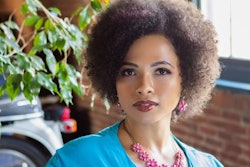CARSON CITY Nev.
Nevada’s universities need to offer health benefits to employees’ domestic partners in order to stay competitive in hiring faculty and staff, state regulators were told Wednesday.
The state Public Employees Benefits Program board voted to ask the attorney general whether they have the authority to make such a change to the benefits system.
Some board members who govern the program questioned why higher education officials didn’t bring the issue to the Legislature, which ended its session last week.
Proponents of the proposal argued the PEBP board has the authority to make the change, which they said is consistent with existing Nevada laws that ban workplace discrimination based on sexual orientation. The change would apply to both opposite-sex and same-sex domestic partners, if adopted.
“The health benefits are a key factor in recruitment and retention,” said Richard Morgan, outgoing dean of the Boyd School of Law at the University of Nevada, Las Vegas. “There are some people whose loved ones really need these benefits.”
Nevada’s colleges and universities compete for employees with other universities, law firms and private employers throughout the country that do offer such benefits, said Morgan. Public employees can get benefits for their domestic partners in 13 states, including California, which has the nation’s largest higher education system.
Richard Ziser, who chaired the successful ballot initiative banning gay marriage in Nevada, opposed the measure, saying that it would lead to children being taught that same-sex and opposite-sex relationships were “moral equivalents.”
He said that voters’ 2002 approval of a ban on gay marriage showed where voters stood on the issue, and accused the proponents of the proposal of bringing the issue to the PEBP board because the Board of Regents and the Legislature wouldn’t vote on the issue.
Presidents of Nevada’s eight higher education institutions petitioned the PEBP board in April, asking them to offer benefits to domestic partners. The idea has generated controversy since the state’s Board of Regents first discussed the idea in 2005.
James Richardson, representing the Nevada Faculty Alliance, said that key legislative leaders had told him that the PEBP board had the authority to deal with the issue, and was the right place to take up the issue.
With many private companies in Nevada and around the country offering such benefits, including more than half of Fortune 500 companies, Richardson urged the board to take action. He said that applicants for some high-level positions had withdrawn after learning that the state doesn’t offer benefits to domestic partners.
“It’s even symbolically important,” said Richardson. “It says something about the state that we live in.”
– Associated Press
© Copyright 2005 by DiverseEducation.com


















